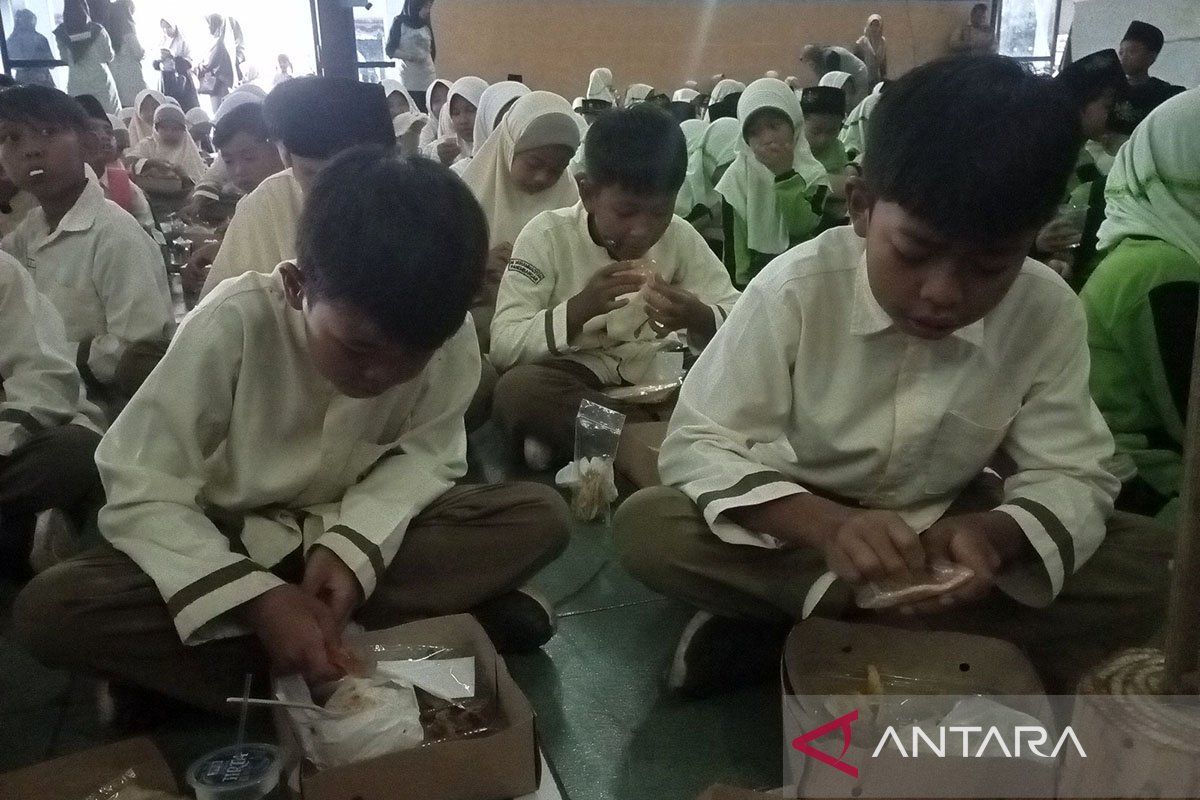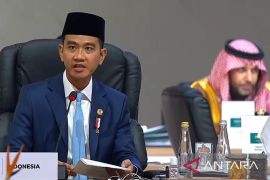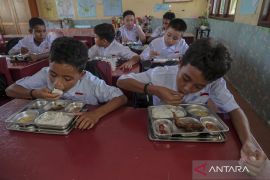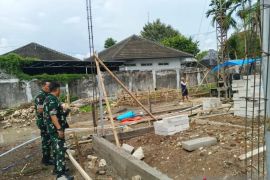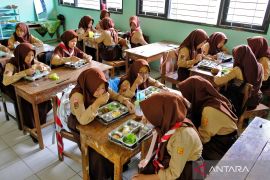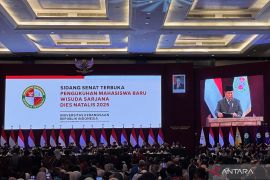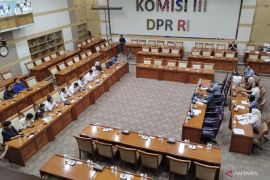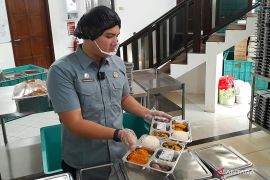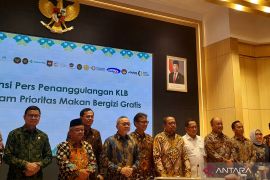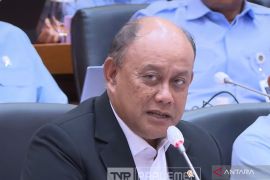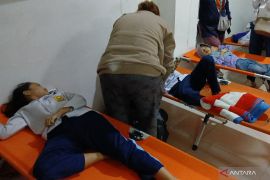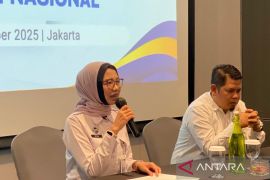On that day, several top officials conducted a first-hand review of the program's implementation at schools, including Primary and Secondary Education Minister Abdul Mu'ti, Cooperatives Minister Budi Setiadi, and Communication and Digital Affairs Minister Meutya Hafid.
Having allocated a budget of Rp71 trillion (nearly USD4.4 billion) for the program, the government is seeking to use the flagship program as a means to improve the health and nutritional intake of those holding the nation's future in their hands.
As per data released by the National Nutrition Agency (BGN) on November 5 last year, the meals program will target to reach up to 20 million beneficiaries in 2025.
They comprise pupils of primary and secondary education institutions, toddlers, pregnant women, and breastfeeding mothers nationwide.
The program is expected to cover about 83 million beneficiaries by the end of President Prabowo's tenure in 2029, according to the deputy chief of Presidential Staff, M. Qodari.
Head of the Poverty Alleviation Acceleration Agency (BP Taskin), Budiman Sudjatmiko, observed that the national program could support Indonesia's mission to alleviate poverty.
The program is being carried out with the objective of producing talented, excellent human resources capable of transforming Indonesia into a high-income country by 2045, its "golden year."
Through the program, the government aims to offer an equal opportunity to all the nation's children to grow healthily and emerge as excellent talents, a prerequisite for Indonesia to improve living standards and ultimately, shed its developing country status.
In March 2024, it was reported that 25.22 million citizens, accounting for 9.03 percent of Indonesia's population, belonged to the poor category.
The figure reflected a decline of 680 thousand compared to the previous year and marked the lowest number recorded over the past decade.
According to data from Statistics Indonesia (BPS), the nation witnessed a notably positive trend in the extreme poverty rate, which fell from 6.18 percent in 2014 to as low as 0.83 percent in 2024.
This has led President Prabowo to target bringing the poverty rate to less than six percent by 2029 and achieve the total elimination of extreme poverty by 2026.
It is believed that the Free Nutritious Meals program will play a role in the government's war against poverty by helping residents, including those from underprivileged families, to fulfill their children's nutritional needs.
Data issued by the BPS has shown an underwhelming rate of daily calorie consumption per capita among Indonesians. In 2022–2024, the nation's average nutritional adequacy rate remained slightly below the minimum of 2,100 calories per day stipulated by the Ministry of Health.
It is worth noting that the data applies to the population as a whole, indicating that such a rate among economically disadvantaged residents could be even more alarming.
In this context, the meals program, which was promoted during Prabowo's and Gibran's electoral campaign, is expected to be instrumental in boosting the nutritional intake of targeted recipients.
Nurrekta Yuristrianti, a nutrition science lecturer at Jenderal Soedirman University, opined that the program will offer economic as well as health benefits.
She said she believes that it could reduce malnutrition prevalence in Indonesia, and ultimately lower the government's expenses on tackling associated issues.
A study conducted by the Institute for Development of Economics and Finance (Indef) showed that the Rp71 trillion budget mobilized for the program could boost Indonesia's gross domestic product by 0.06 percent this year.
As instructed by President Prabowo, in its implementation, the program should prioritize absorbing locally produced food ingredients and materials to help stimulate the local economy.
Additionally, the government has repeatedly affirmed its intention to embrace micro, small, and medium enterprises and empower the local workforce to operate special kitchens for cooking and distributing free nutritious meals.
The BGN is currently operating a total of 190 such kitchens, called Nutritional Fulfillment Service Units (SPPG), in 26 provinces across the country. The target is to make five thousand kitchens operational by mid-2025.
"With those points in mind, it is safe to say that not only does the Free Nutritious Meals program aim to fulfill the nutritional requirements of children, pregnant women, and breastfeeding mothers, but also empower all elements of society, with the end goal of improving people's welfare," Yuristrianti said.
As the nation is dreaming of the emergence of a healthy, competitive, and high-income Indonesia by 2045, the government is striving to devise and offer breakthroughs, such as the meals program.
However, support from all citizens is required to make the program a success, as working alone to achieve the task is not a rational option for the government.
Related news: Free meals program to improve human resources: Indrawati
Related news: E Jakarta preschool first PAUD to serve free nutritious meals
Editor: Rahmad Nasution
Copyright © ANTARA 2025
